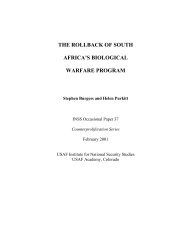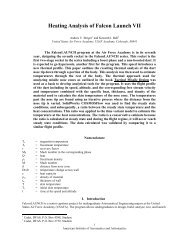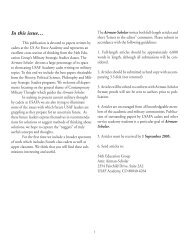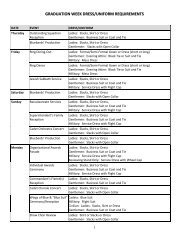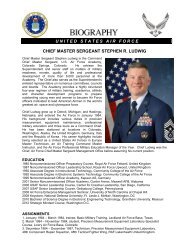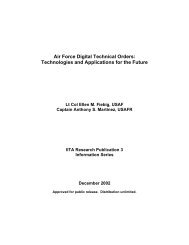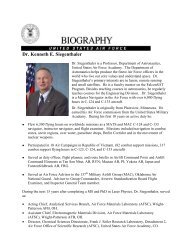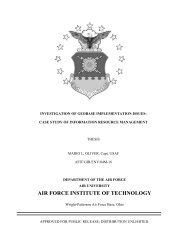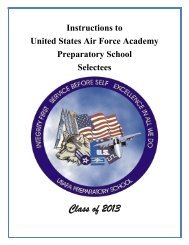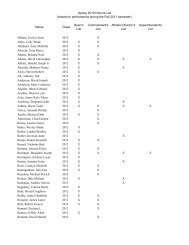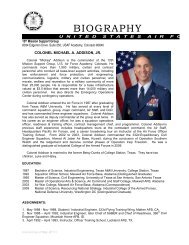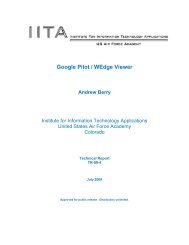Military Professionalism - United States Air Force Academy
Military Professionalism - United States Air Force Academy
Military Professionalism - United States Air Force Academy
Create successful ePaper yourself
Turn your PDF publications into a flip-book with our unique Google optimized e-Paper software.
which a strategic leader operates will consist of diverse actors, hybrid threats,<br />
unpredictable indigenous partners, global media, and interagency partners. To be<br />
successful, leaders should have the boldness, vision, creativity, and mental agility to<br />
make critical decisions based on information received from those upper levels and<br />
gathered from gray areas. Academic education, self-education, and personal experience<br />
opportunities provides superior education that broadens senior leaders’ perspective and<br />
prepares them to meet future challenges. The main purpose of this education should be to<br />
develop future strategic leaders and critical thinkers.<br />
Betros, Lance. “Political Partisanship and the <strong>Military</strong> Ethic in America.” Armed<br />
<strong>Force</strong>s and Society 27.4 (Summer 2001): 501-523.<br />
A 1999 survey found that the majority of military officers were Republicans, which many<br />
people viewed as a departure from political neutrality and the professional military ethic.<br />
Betros argues that nothing in the military voting patterns suggests that casting a ballot<br />
undermines responsibility or officer professionalism. Any decline in professionalism is<br />
more likely due to the officer corps losing its focus on fighting and winning the nation’s<br />
wars. Officers must understand the political system to more effectively provide military<br />
advice and protect the interests of the profession. Exercising their right to vote is a<br />
logical extension of that awareness.<br />
Bland, Douglas L. “Patterns in Liberal Democratic Civil-<strong>Military</strong> Relations.” Armed<br />
<strong>Force</strong>s and Society 27.4 (Summer 2001): 525-540.<br />
Effective national defense requires social, political, and military harmony, but harmony is<br />
unlikely unless civilian and military leaders base their thinking and action on common<br />
concepts. In liberal democracies, the basic concepts that underpin civil-military relations<br />
are those few essential ideas that define such democracies in the first place.<br />
Brooks, Rosa. “Weaning the <strong>Military</strong> from the GOP.” The Los Angeles Times (Jan.<br />
5, 2007): A.23.<br />
The Republicanization of the military over the last 30 years has had distorting effects on<br />
public debates about national security, making it almost impossible to question<br />
Republican national security policies without being labeled “anti-military.” The inability<br />
to question policy threatens democratic ideals of civilian control. The trend towards<br />
Republicanization has been reversing since 2004, and the military is becoming nonpartisan<br />
again.<br />
6




